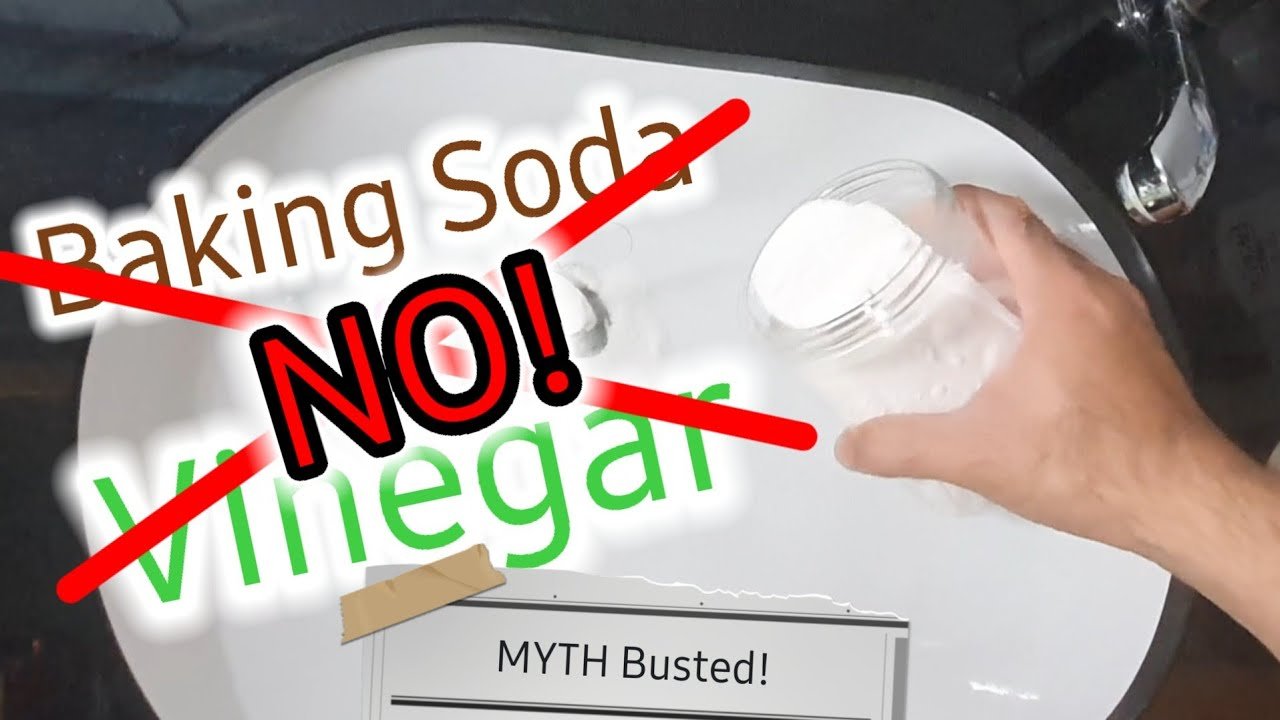Why You Should Never Use Baking Soda and Vinegar to Unclog a Drain
Clogged drains can be a frustrating problem, and many homeowners turn to simple DIY solutions for a quick fix. Among the most popular remedies is the combination of baking soda and vinegar. However, why you should never use baking soda and vinegar to unclog a drain is a crucial question that every homeowner should consider before attempting this method. While it may seem harmless, this mixture can lead to more trouble than you might expect.
In this article, we’ll delve into the science behind baking soda and vinegar, explain why it’s not the best choice for drain cleaning, and offer alternative methods to safely and effectively clear your pipes.
The Science Behind Baking Soda and Vinegar Reactions
The combination of baking soda and vinegar is often touted as a natural cleaning method. While it works well for certain household tasks, it’s less effective — and even risky — when used to unclog drains. Here’s why:
- Chemical Reaction: Baking soda (sodium bicarbonate) is a base, while vinegar (acetic acid) is an acid. When combined, they create a fizzing chemical reaction that releases carbon dioxide gas and water.
- Lack of Power: The reaction does produce bubbles, but it’s not strong enough to dissolve stubborn clogs. It may look impressive, but this reaction lacks the force needed to clear away grease, hair, and other solid blockages commonly found in drains.
Why You Should Never Use Baking Soda and Vinegar to Unclog a Drain
While the baking soda and vinegar method might seem effective on the surface, here are several reasons why you should avoid it for drain cleaning.
1. Ineffectiveness Against Tough Clogs
The reaction between baking soda and vinegar isn’t strong enough to break down substantial clogs:
- Weak Foaming Reaction: The fizzing created by the mixture is mild, producing bubbles rather than a powerful dissolving action.
- Limited Reach: The reaction occurs quickly after mixing, meaning the gas dissipates before reaching deep into the pipes.
2. Potential Damage to Pipes
Using baking soda and vinegar to unclog drains can potentially damage your plumbing:
- Pipe Wear and Tear: Regular use of these substances may corrode pipes over time, especially if they’re made of certain materials like aluminum or cast iron.
- Pressure Buildup: The reaction creates a small amount of pressure as gas is released. When the gas gets trapped in the drain, it may cause stress on the pipes and joints.
3. Risk of Residue Buildup
Instead of clearing the drain, this method may lead to a sticky residue:
- Soap Scum and Baking Soda Mix: Baking soda is often left behind in the pipes, combining with soap scum to create an even tougher clog.
- Grease Hardening: Vinegar can cause fats to congeal, making greasy clogs harder to clear and more prone to accumulating.
4. Not an Environmentally Friendly Solution
Ironically, although marketed as a “green” option, the baking soda and vinegar method can backfire environmentally:
- Waste of Ingredients: You’re essentially pouring edible products down the drain without any benefit.
- Inefficient Water Use: Homeowners often end up using more water to flush the solution down the drain after it fails, resulting in unnecessary water waste.
Better Alternatives to Unclog Your Drains Safely
Given the drawbacks, it’s wise to consider safer, more effective alternatives. Here are some professional methods recommended by experts:
1. Hot Water and Dish Soap
One of the simplest ways to break down grease-based clogs is by using hot water and dish soap:
- Boiling Water: Pour boiling water down the drain to dissolve grease and loosen debris.
- Dish Soap: Add a few drops of dish soap to help break down any oily buildup.
2. Plunger
A plunger is an effective tool for minor blockages:
- Creates Suction: By creating a seal and applying pressure, a plunger can dislodge blockages.
- No Chemicals Needed: This method is eco-friendly and won’t harm your pipes.
3. Plumbing Snake or Drain Auger
For more stubborn clogs, consider using a plumbing snake:
- Mechanical Removal: A plumbing snake can physically remove hair, food particles, and other blockages.
- Long Reach: Drain augers reach deeper than the baking soda and vinegar mixture can.
4. Call a Professional
If your drains are persistently clogged, it’s best to call a professional plumber for help. Emergency drain cleaning Etobicoke and Plumber Services Etobicoke are excellent options for those in the Etobicoke area who need immediate assistance.
Benefits of Professional Drain Cleaning Services
Hiring a professional for drain cleaning has multiple advantages, especially for recurring or severe blockages.
1. Expert Diagnosis
Professionals use specialized tools and experience to diagnose the source of a clog:
- Cameras and Sensors: Plumbing experts can inspect your pipes and pinpoint the issue.
- Tailored Solutions: They can suggest the best remedy for your specific problem, which is often more effective than DIY solutions.
2. Thorough Cleaning
Professional drain cleaning services use tools that deliver powerful results:
- Hydro Jetting: High-pressure water jetting can clear out clogs and even clean the pipe walls.
- Powerful Enzymes: Professionals may use safe, enzyme-based solutions to break down organic clogs.
3. Cost Savings in the Long Run
Hiring a plumber can save you money over time by preventing damage:
- Avoids Expensive Repairs: Regular maintenance keeps your pipes in good condition and reduces the risk of costly repairs.
- Prevents Blockages: A professional cleaning clears pipes more thoroughly, minimizing future issues.
Common Myths About Baking Soda and Vinegar for Drains
Let’s address some common myths about using baking soda and vinegar to unclog drains:
- Myth #1: The reaction is powerful enough to dissolve all types of clogs.
- Fact: The foaming action is weak and typically ineffective against solid or greasy clogs.
- Myth #2: It’s a harmless, eco-friendly option.
- Fact: The mixture can lead to pipe corrosion and even worsen clogs by creating residue.
- Myth #3: It works well for all types of pipes.
- Fact: This combination can damage certain materials over time, like aluminum and old cast iron pipes.
DIY Drain Unclogging Techniques That Actually Work
Instead of reaching for baking soda and vinegar, try these more effective techniques for common clogs:
- Baking Soda and Salt: For light clogs, use a mix of baking soda and salt, followed by hot water. The abrasive texture of salt can help break down debris.
- Wet/Dry Vacuum: Use a wet/dry shop vacuum to suction out blockages from the drain.
- Biological Drain Cleaners: These eco-friendly cleaners contain enzymes that naturally break down organic matter without harming your pipes.
Conclusion: Why You Should Never Use Baking Soda and Vinegar to Unclog a Drain
In conclusion, why you should never use baking soda and vinegar to unclog a drain boils down to science, safety, and effectiveness. While this method may work for some light clogs, it’s unreliable and could damage your plumbing. For effective and safe drain cleaning, consider professional help from Emergency drain cleaning Etobicoke or Plumber Services Etobicoke. By choosing proven techniques and avoiding quick fixes, you can keep your drains flowing freely and your plumbing in excellent shape.







